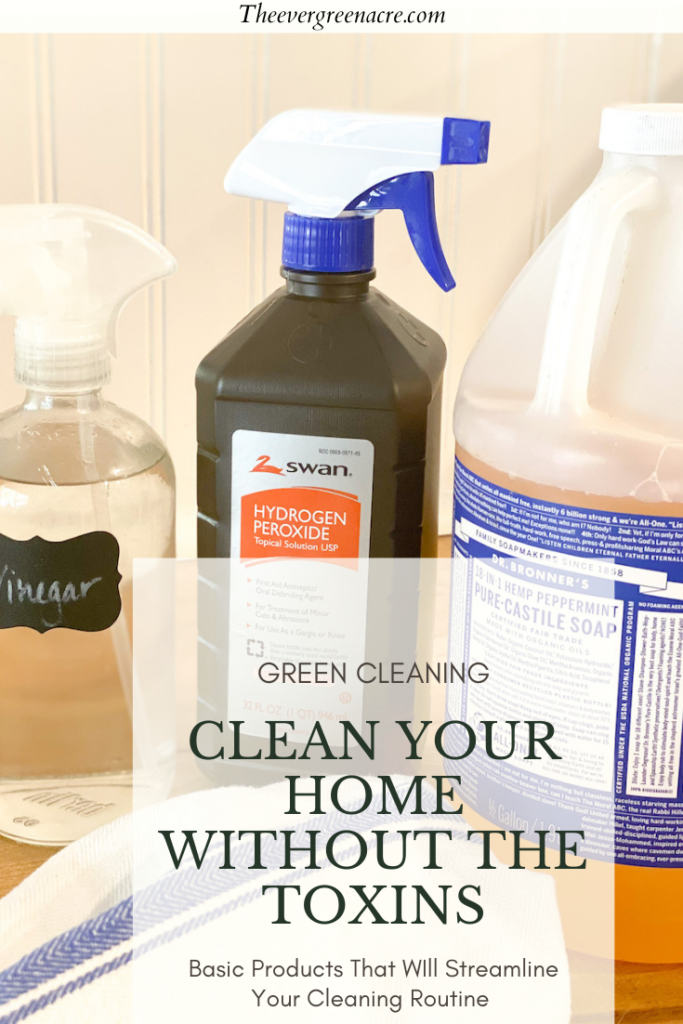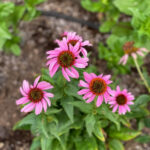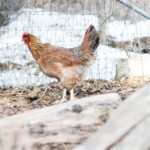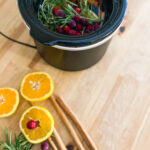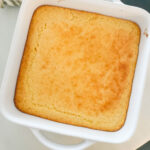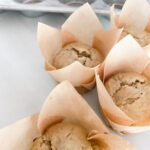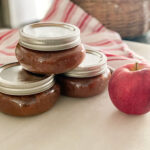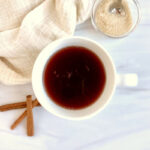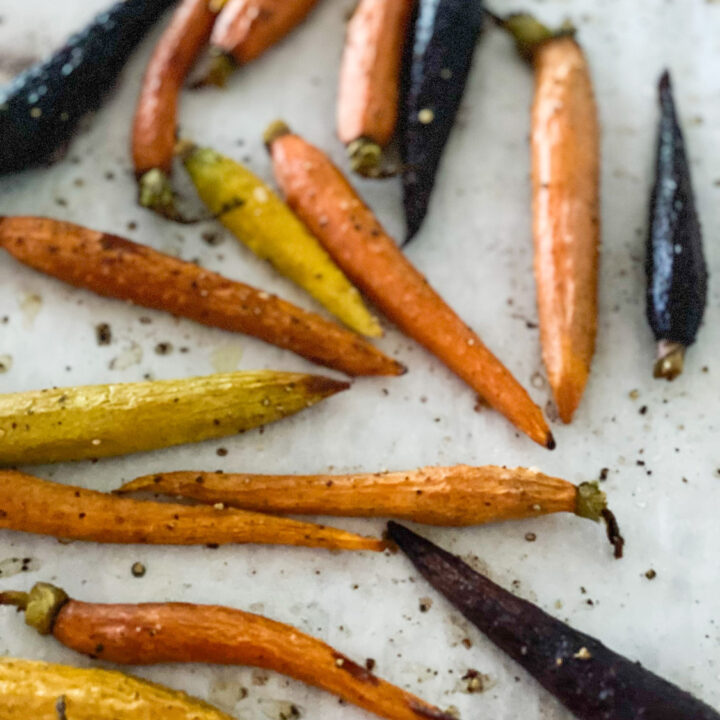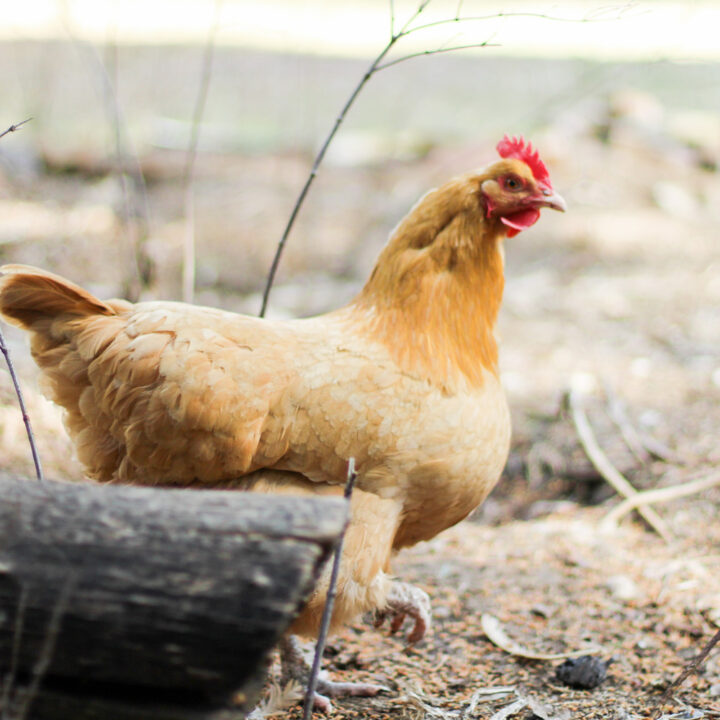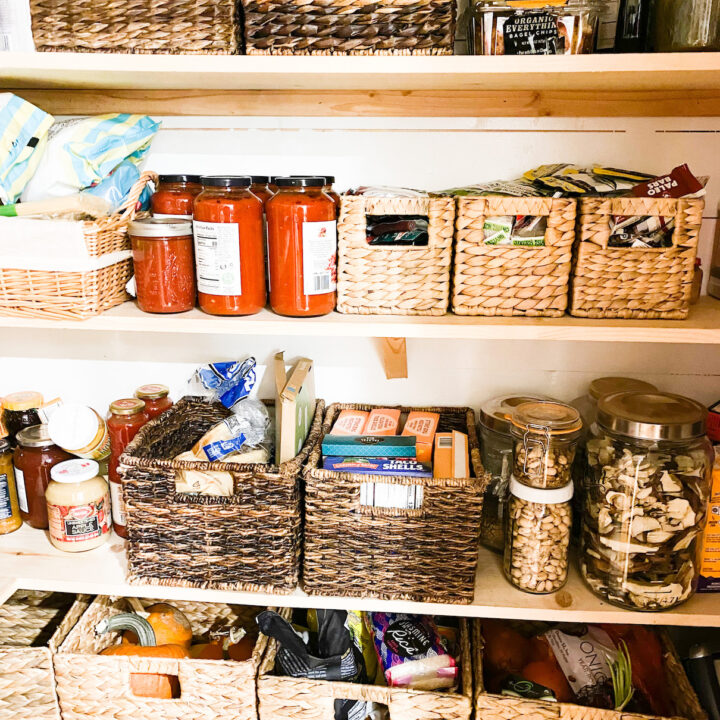In this article you'll learn about the best natural cleaners, that can clean even the toughest jobs.
Is your home brimming with different types of cleaners, one for the bathroom, the kitchen countertops, the windows... You get what I'm saying. When I switched to non toxic cleaning supplies I was pleasantly surprised to find that I only needed a small handful of products. Not only did this cut down on my need for different cleaners for every room it streamlined my cleaning routine. Simplify your cleaning routine, and create a non-toxic home.
Why choosing natural Home cleaning products matters
I was once a "cleaner junkie" I bought something for the grout in my bathroom, the toilet, the windows, etc, etc. I spent oodles of money on expensive cleaners that promised to make my house smell great and sparkle! Shortly after having my first son I took a look into some of the ingredients in these "miracle" cleaners. After a quick check over at the EWG (Environmental Working Group) website I was astonished to find that not only were these cleaners probably not cleaning my house all that well, they were highly toxic and could actually be making our living environment less clean, and far less healthy! I did a massive purge, and it felt great! Out with the old, and in with the ... Non-toxic!
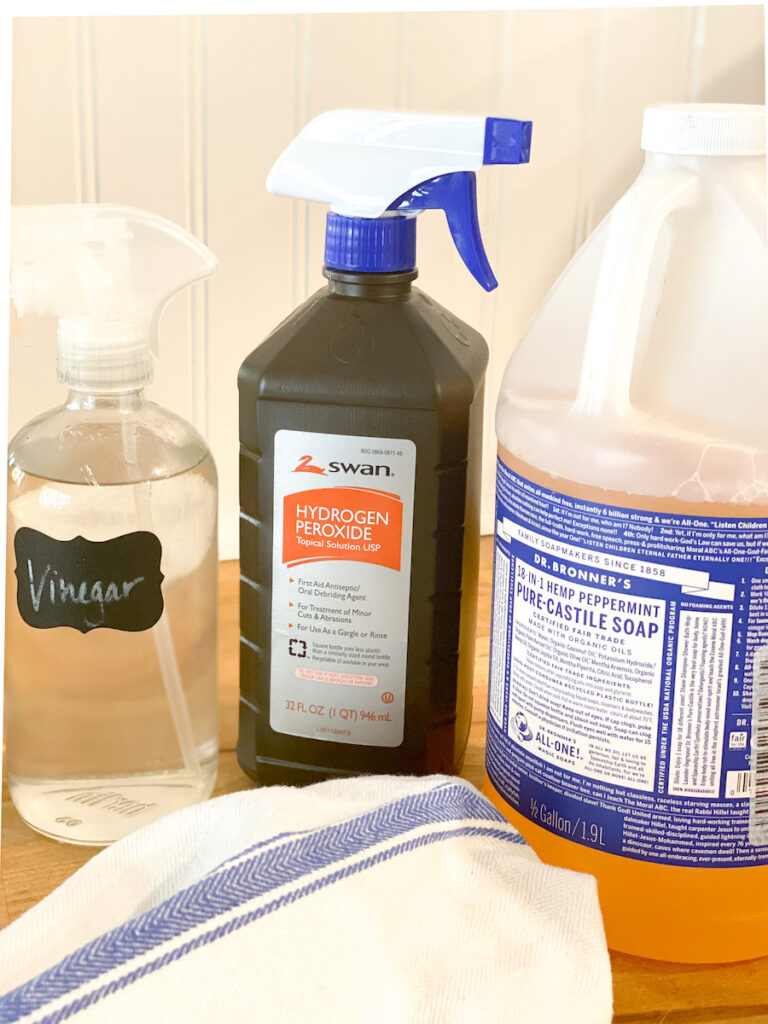
Finding a Natural cleaner that works for you
Now that all of my old toxic cleaners had been swiftly removed from my home, what could I replace them with that would be effective? I delved into research on effective natural cleaners, I read several books on cleaning the home with natural non-toxic products. Much to my pleasure most of these products were diy and extremely inexpensive.
I tested many diy recipes for various cleaners, and yet again I found my self on cleaner overload. A different cleaner for every aspect of my home! I needed simplicity. That is when I paired my home cleaning products down to a few basic things. Full disclosure I don't use these products on my laundry or in my dishwasher, and I do mix in a few other store-bought non-toxic cleaners from time to time. That said, these very simple natural products clean my bathrooms, kitchen, refrigerator, highchair, floors, windows the list goes on.
Distilled White Vinegar
There can be some confusion with vinegar, as there are many to chose from when you visit the grocery store. It is important you chose the one that is primarily created as a natural cleaner.
Distilled white vinegar is my go too. This versatile product can clean glass shower grout, bathroom sinks, the washing machine. You name it and it will probably clean it. Do however be cautious around marble and other surfaces that are porous and soft, the acid in vinegar can damage stone like marble very easily. My favorite use for distilled white vinegar is in my dishwasher. I run a quick cycle on my dishwasher empty with just a bowl of vinegar inside. It removes all of the hard water and any soap residue.
Vinegar also acts as a mild disinfectant which I like for cleaning floors, highchairs and even my butcher block countertops. Double check that it won't remove any finishes on your wood surfaces before using it. I have never had a problem but know people who have. It is also a wonderful deodorizer for smelly fridge surfaces.
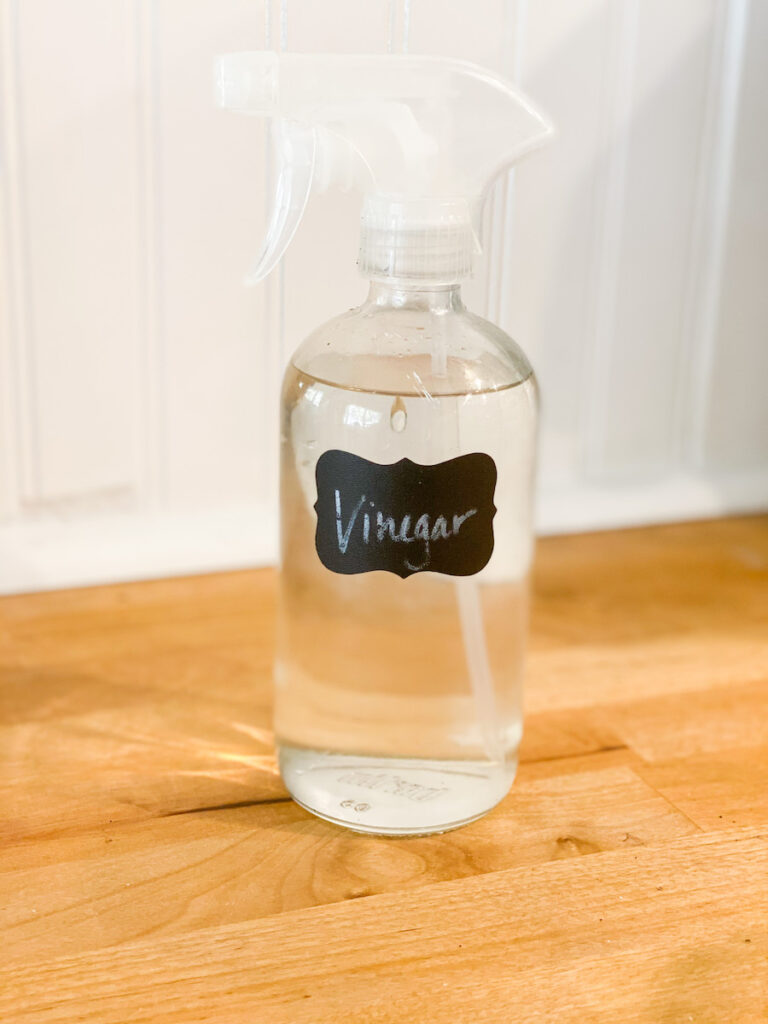
What is distilled vinegar? White Distilled Vinegar is the most common type of vinegar in American households and is made from grain-based ethanol which is converted to acetic acid through a fermentation process and diluted to preferred acidity with water. Distilled white Vinegar can be used inside and outside of the home for: cooking, canning, pickling, cleaning, laundry, automotive and gardening needs. In other words it's a miracle worker and a staple in my home cleaning arsenal.
Hydrogen Peroxide
Hydrogen peroxide is a powerful natural cleaner, used in my home cleaning anywhere that you might otherwise you bleach or a bleach like cleaner. For example bathroom countertops, toilets, highchairs (when they really need to be disinfected) etc. I use it in its common three percent solution.
Hydrogen peroxide is a chemical compound with the formula H ₂O ₂. In its pure form. It is used as an oxidizer, bleaching agent, and antiseptic. You can use hydrogen peroxide on stains, to clean grout, whiten and clean your tub and tile and to remove rust to name a few uses. I like these recipes.
Castile Soap
Castile soap (pron. ka-ˈstēl) is a versatile cleaner made from vegetable oils. It originated in the Castile region of Spain, where olive oil was combined with sodium carbonate to create a hard white soap. Castile soap dates back to the 16th century.. Since then, production has evolved to include other plant-based oils, such as coconut, palm kernel, hemp, and jojoba. Castile soap comes in a variety of scents typically these are essential oil based fragrance, I do recomend avoiding any cleaners with synthetic fragrance.
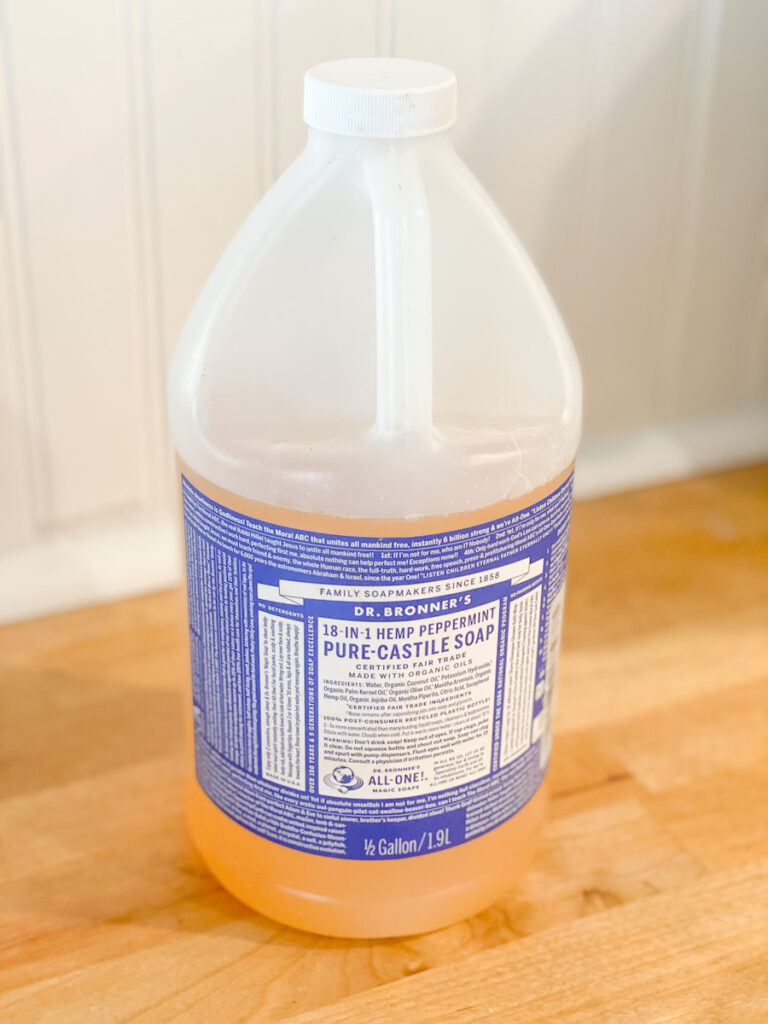
Castile soap is a versatile natural cleaner, many claim you can use this soap for personal and conventional cleaning purposes. I prefer not to use the liquid Castile soap on my body as it has a very drying effect, but to each their own. I prefer to use this very effective soap for more conventional cleaning purposes, for instance any place you might use a certain "bright blue" dish soap. Castile soap is an awesome degreaser and it can be used on a wide variety of surfaces.
My favorite way to use Castile soap is as follows: Warm one quart water and add one-quarter cup castile soap. Mix and pour into a spray bottle. Use this to clean counters, appliances, furniture, floor stains, dusty surfaces, etc. Spray and wipe with a clean cloth. For more scrubbing power, sprinkle the surface with baking soda before spraying (I like to do this on my oven door and cook top.
